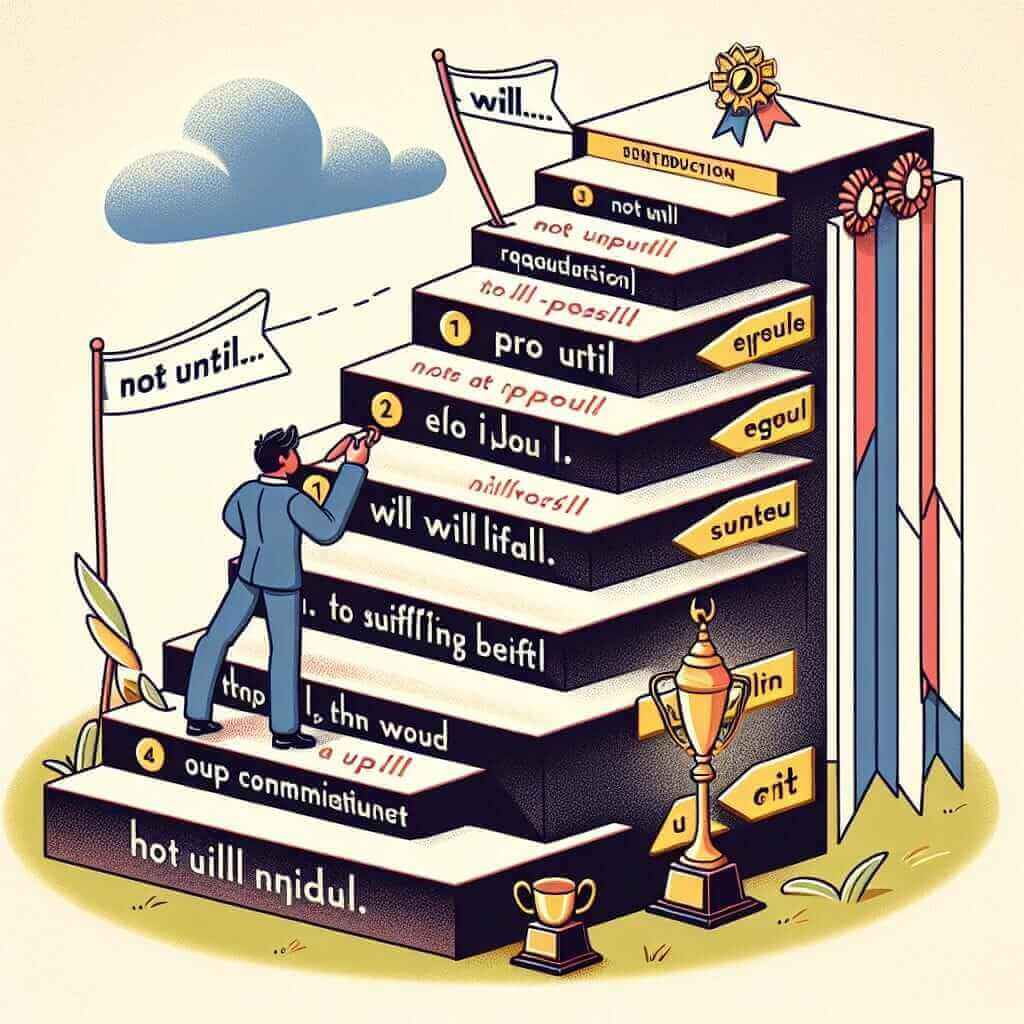The phrase “Not until you try, will you understand” often leaves English learners puzzled. Why is the verb “will” before the subject “you”? This structure, called inversion, is a powerful tool for emphasizing a point and showcasing your grammatical range in the IELTS exam.
Let’s examine some examples of how “not until” and inversion can be used across different sections of the IELTS:
Speaking (Part 3):
Examiner: Do you think people should travel more when they are young?
You: Absolutely. Not until you experience different cultures, will you truly appreciate the diversity of the world.
Writing (Task 2):
Some people believe that happiness comes from having a lot of money. Others believe that true happiness comes from relationships and personal fulfillment. Not until individuals prioritize personal growth and meaningful connections, will they discover genuine contentment.
Deconstructing “Not Until…Will…”
This structure is used to emphasize that something will only happen after another event. It creates a dramatic effect and highlights the importance of the condition in the first clause. This is particularly valuable in IELTS writing where you need to present arguments clearly and persuasively.
The Formula and Its Application
Here’s the structure broken down:
Not until + [Clause 1 (condition)] + auxiliary verb (will/would/can/could) + [Clause 2 (result)]
Let’s break down the formula:
- “Not until”: This phrase signals that the main action will only happen after the condition is met.
- [Clause 1 (condition)]: This part of the sentence states the necessary action or event.
- Auxiliary Verb: An auxiliary verb like “will,” “would,” “can,” or “could” is placed before the subject of the second clause.
- [Clause 2 (result)]: This part describes what will happen once the condition is fulfilled.
How to Use It Effectively in IELTS:
- Speaking: Use it when expressing strong opinions or beliefs based on a condition.
- Writing (Task 2): Employ it to create impactful topic sentences or to emphasize a point in your argument.
- Reading: Recognize this structure to understand the relationship between events or ideas in the text.

Putting It Into Practice
Let’s see how “not until…will…” functions in different IELTS contexts:
Writing (Task 2 – Environmental Protection):
Many individuals believe that environmental issues are the sole responsibility of governments and large corporations. However, not until every single person takes responsibility for their own environmental footprint, will we see a significant and lasting change in the health of our planet.
Speaking (Part 3 – Importance of Education):
Examiner: Some people argue that practical skills are more important than a university education. What are your thoughts?
You: While practical skills are undeniably important, I disagree. Not until you’ve had the opportunity to develop critical thinking and problem-solving abilities through higher education, will you be truly equipped to navigate the complexities of the modern workforce.
Reaching Higher Bands
To impress the IELTS examiner and aim for band 7 or higher, consider these tips:
- Variety is Key: Don’t overuse this structure. Use it strategically to emphasize specific points.
- Context is Crucial: Ensure the structure fits naturally within your sentence and paragraph.
- Punctuation Perfection: Remember the comma after the first clause.
Common Errors to Avoid
- Incorrect Word Order: Remember the inversion – the auxiliary verb comes before the subject in the second clause.
- Missing Comma: Don’t forget the comma after the first clause.
By understanding the structure, meaning, and strategic application of “not until…will…,” you can add a sophisticated element to your IELTS writing and speaking, allowing you to express yourself with greater clarity, emphasis, and nuance.